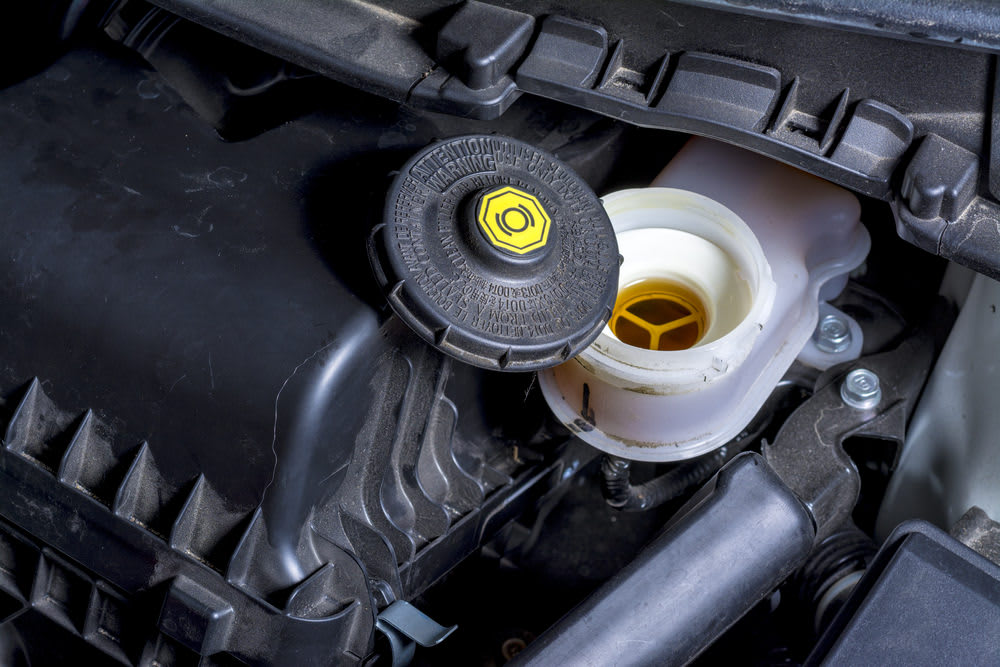

For the most part, the braking system in a vehicle is closed, meaning bits of grit and grime can’t make their way in through any holes or gateways. In theory, that should mean the brake fluid inside the system will never get dirty and things like a brake fluid flush or replacement should be reserved for rare occasions when something serious is amiss. Unfortunately, your brake system doesn’t operate in a theoretical realm and moisture can make its way into the brake fluid through the hydraulic lines. As that moisture causes the fluid to chemically break down and the moisture begins to rust metal components in the system as a whole, you can end up with contaminated brake fluid.
If your vehicle has dirty brake fluid, it needs a brake flush, or a thorough cleansing to remove all unwanted particles and residual moisture before replacing the fluid with fresh, uncontaminated brake fluid. The problem lies in knowing when you have contaminated brake fluid. This is why many mechanics and manufacturers recommend performing a brake fluid flush every two years or 24,000 miles as a precautionary measure. There are circumstances, however, when you should consider a brake flush more frequently or may need one immediately, including:
Driving under heavy braking conditions: If, for example, you frequently tow a trailer or have a mountainous commute, you likely demand more of your brake system. With those increased demands, moisture will enter your brake fluid and begin wreaking havoc more quickly than usual.
Any time other work is performed on the brake system: There are two reasons why a brake fluid flush should be included when you have your brake shoes replaced or other brake system maintenance. First, it’s easier to do when you or a mechanic is already there. Secondly, your brake fluid is more vulnerable to accumulating moisture and other contaminants when other work occurs in that region of your vehicle.
Brake warning lights on your dash: When you see the ABS or Brake System light illuminate on your dash, don’t hesitate to have your brakes and brake fluid checked. This often means the fluid levels are low, which is likely caused by leaking brake lines, which also allows contaminants to enter into the dirty brake fluid.
Noticeable change in pedal pressure: Some people refer to this as a “spongy” feeling to the brakes, but it really refers to either the pedal depressing harder or more easily than usual. Both are bad signs and indicate you should have your brake system inspected, including checking for contaminated brake fluid, because fluid is likely leaking through the lines or master cylinder.
Pulling to one side while driving: If your car or truck noticeably pulls to one side as you drive, it could indicate a brake fluid leak, which would also mean the remaining fluid is contaminated from moisture and grit entering where the fluid escapes. Although this may be caused by other issues, it is important to rule out any problems with your brake system for safety purposes.
Contaminated brake fluid can have catastrophic consequences, which is why any issue with your braking system should not be taken lightly. If you suspect you have dirty brake fluid and may require a brake flush, don’t hesitate to call one of highly qualified technicians for a consultation.



